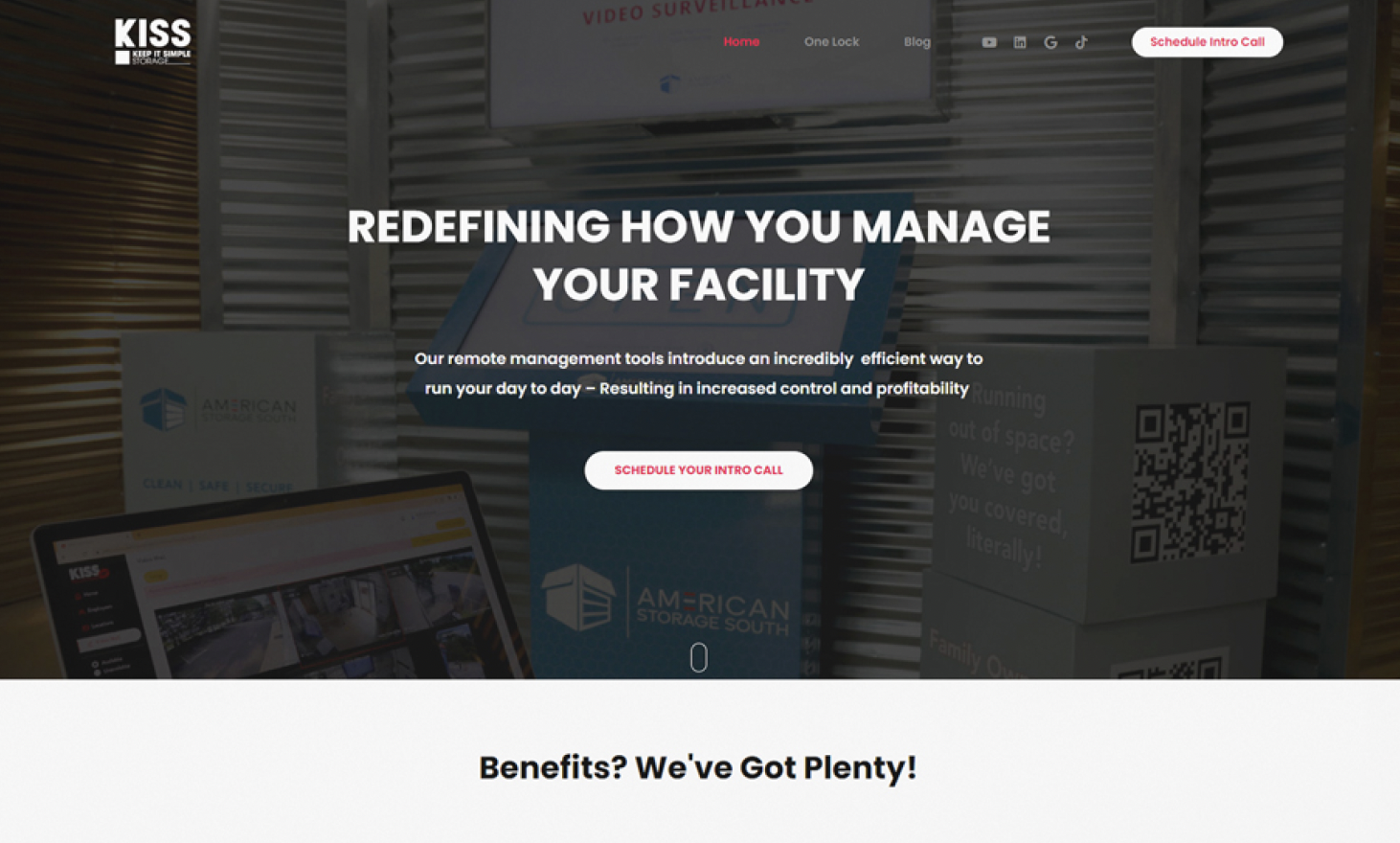- Developers
- Developer Blog
- Software Development
- HIPAA Compliance for Software Development

profile

By Faiza Khalid
Verified Expert
5 years of experience
Faiza is a CIS engineer with a keen interest in software development, AI research, and technology writing.
Are you searching for a developer checklist of HIPAA compliance for software development? You better be if you are interested in developing a healthcare application or if your business application needs to interact with healthcare data.
HIPAA, or the Health Insurance Portability and Accountability Act of 1996, is a US federal law that protects and maintains sensitive healthcare information confidentiality, integrity, and validity. HIPAA compliance is mandatory for every software product and service that stores, transfers, or interacts with US citizens’ electronic personal health information (ePHI).
In case of non-compliance, legal fines range from $100 to $1.5 million per record, depending on the reason for violation. Consequences could also include criminal penalties for grave PHI violations like wrongful disclosure.
A comprehensive HIPAA compliance checklist helps you undertake reliable and secure healthcare software design and development.
Developing HIPAA-compliant software requires a thorough understanding of HIPAA regulations, healthcare domain standards, cutting-edge application security, and state-of-the-art technologies like AI, cloud computing, etc.
If you don’t have a professional team with this relevant expertise to take on that task, then submit a request for a complimentary discovery call, and one of our tech account managers who managed similar projects will contact you shortly.
We now discuss HIPAA compliance software development in detail.
HIPAA Compliance Checklist for Software Development
Take the following steps to ensure HIPAA compliance in your software development process and the final application:
Determine if Your Application Requires HIPAA Compliance
The first step is to decide whether your application needs HIPAA compliance. You can assess this as follows:
Understand the nature of your data
Determine if your application stores or handles protected healthcare information. This includes individually identifiable information related to an individual’s past, present, or future health.
Understand HIPAA-concerned entities
The HIPAA Act distinguishes two categories of entities that must be HIPAA-compliant – covered entities and business associates.
Covered entities include organizations that generate, receive, or distribute protected health information (PHI), including healthcare providers, healthcare insurance providers, etc.

Get a complimentary discovery call and a free ballpark estimate for your project
Trusted by 100x of startups and companies like
A Business associate could be any company that interacts with PHI in any way on behalf of covered entities. These include third-party advisors, software companies, etc.
Determine if your application falls into any of these categories.

Review application functionality
Assess the features of your application. If you have a functionality that involves electronic health records (EHR), telehealth services, health insurance processing, etc., you might require HIPAA compliance.
Identify user types
If healthcare professionals or users interacting with PHI use your application, HIPAA compliance most likely should be necessary for your software.
Integration with healthcare systems
If your application integrates with other healthcare systems or PHI databases, it should follow HIPAA regulations.
Get Familiar With the Rules of HIPAA Compliance for Software Development
Now that you have determined the requirement for HIPAA compliance for your software based on the involved data and end-users, the next step is to get a thorough understanding of the components and requirements of HIPAA.
Get familiar with the following:
HIPAA rules
The five essential HIPAA requirements that applications dealing with ePHI must adhere to include the following:
Privacy rule
The HIPAA privacy rule includes national guidelines for the use and disclosure of health data. It establishes patients’ right to access protected health information, including the ability to view PHI, request adjustments to the patient data, etc.
The rule also defines permissible uses of PHI and consent requirements to disclose certain information. It sets penalties for illegal data disclosures.
Security rule
The HIPAA security rule sets standards for the security of electronic protected health information. The key provisions include requiring covered entities and business associates to implement physical, technical, and administrative safeguards and perform risk assessments to identify and mitigate vulnerabilities.
The security rule establishes standards for access control, data encryption, etc. It assists with security policy implementation to ensure the integrity and confidentiality of ePHI.
Breach notification rule
The HIPAA breach notification rule sets guidelines for covered entities and business associates in the event of a breach involving electronically protected health information. It requires involved entities to assess system breaches and notify the concerned individuals and the Department of Health and Human Services (HHS).
The rule also outlines what constitutes a data breach and provides guidance on risk assessments. It specifies rules for breach reporting depending on the severity of the incident.
All incidents, big or small, must be reported to HHS OCR (Office for Civil Rights). If the breach impacts more than 500 people, the healthcare entity or business associate must inform the media as well.
Enforcement rule
The HIPAA enforcement rule defines the penalties and fines for non-compliance. It outlines the procedures of HHS in case of data breach incidents. The amount of fine varies depending on the number of health records compromised and the degree of breaches for a business.
The first and one-time breach could result in a penalty of anywhere between $100 and $50,000, while consecutive breaches from a business can cost up to $1.5 million.
Omnibus rule
The Omnibus rule was introduced in 2013 as an extension to the existing HIPAA rules. It implements provisions of the HITECH rule that require a business associate to be HIPAA compliant.
The HIPAA Omnibus rule sets standards for business associates agreements (BAA), which a covered entity and a business associate or two business associates must sign before ePHI transfer or interaction.
Key definitions
Understand key terms in HIPAA parlance, like protected health information, business associate, de-identified health information, business associate agreement, national provider identifier (NPI), minimum necessary standard, HIPAA security officer, etc. Key HIPAA definitions help better understand the regulations and their implications.
HITECH Act
The piece of legislation was issued in 2009 to promote the adoption and meaningful use of health information technology and electronic health records in the United States. Familiarity with the HITECH Act ensures you comply with the latest requirements of HIPAA compliance for software development.
The HITECH Act includes several provisions related to healthcare technology and privacy, like
Hire expert software developers for your next project
1,200 top developers
us since 2016
- EHR certifications;
- Expansion of HIPAA regulations with new requirements for business associates;
- Penalties for non-compliance;
- Health information exchange;
- Data analytics and research, etc.
Secure Application Data
One way to ensure compliance with HIPAA rules is to secure your application data storage and transmission.
Implement Transport Encryption
Encrypt healthcare data before transmission. Use SSL and HTTPS protocols to secure sensitive electronic data. Refer to the HIPAA-compliant hosting checklist to select the right public or private cloud providers for your application.
Cloud service providers should allow you to configure your SSL protocols using strong encryption algorithms to ensure high data security during transmission. Use hash algorithms to store and transmit passwords. Validate HTTPS setup and ensure there are no expired TLS versions.
HIPAA also provides guidelines on data security for WordPress and other websites.
Ensure Backup and Storage Encryption
Many businesses have a data backup and recovery strategy to retrieve critical data in case of an emergency or accident without any information loss. HIPAA compliance for software development requires secure backup and recovery of healthcare information.
Use industry-approved encryption standards like AES and RSA algorithms with strong keys to store encrypted data on servers. In case of a breach or compromise, your stored data, including databases, logs, files, etc., should remain inaccessible and secure.
Backup and storage encryption are also possible with managed storage solutions like Amazon Relational Database Service. PostgreSQL manager also has a built-in data encryption feature.
Guarantee Data Integrity
It is of utmost importance that every piece of data you collect, store, and transfer is kept safe from tampering. The first step towards ensuring data integrity is to detect tampering activity, no matter how small. Moreover, your system should immediately report incidents of unauthorized data tampering.
One technique to ensure data integrity is digitally signing and verifying each data value stored or transmitted by your software system. Checksums and cryptographic functions also help detect any alterations during transmission or storage.
Implement Identity and Access Management
Identity and access management is essential for HIPAA compliance. HIPAA has strict rules for data security, including institutional data, user data, passwords, etc. Information should always only be shared with authorized entities.
Access controls via multiple-factor authentication for identity verification are essential. However, healthcare professionals frequently access large amounts of records, and multiple-factor authentication could slow down the information retrieval processes.
Single Sign-On is a technique to accelerate the process. SSO requires users to sign in only once to access several websites and applications on the network during one session.
Biometric verification can also be integrated into your healthcare system to ensure system access control. Users can verify their identity based on voice, fingerprints, face, etc.
You should apply anti-spoofing techniques in case you use the biometric technology. Anti-spoofing prevents system intruders from simulating the unique biometrics of another person. You can implement live detection, multiple biometric verification authentication, etc.
System logs are also necessary to adhere to HIPAA standards. Your system should write access logs and event logs to keep track of login attempts and changes made to the PHI.
Attribute-based access control helps with complications of traditional role-based access control where roles might overlap. It provides dynamic access to applications and data according to access control policies based on user attributes instead of roles.
Devise a Remediation Plan of HIPAA Compliance for Software Development
A HIPAA remediation plan entails all the steps business associates take to protect and secure users’ sensitive health information in case of a data breach or leak.
The plan includes the actions the system will take in case of unauthorized activity, such as running an automatic kill process, following protocols for notifying users and administrators, etc.
A robust remediation plan helps businesses identify security lapses in their systems and take corrective measures to prevent the occurrence of unwanted events. An effective remediation plan consists of the following actions:
- Identify the security issue;
- Gather relevant information and data related to the issue;
- Investigate and determine the root cause of the issue;
- Set clear objectives for remediation efforts;
- Prioritize remediation actions based on impact, feasibility, and urgency.
- Allocate resources to execute your remediation plan;
- Develop a timeline for remediation activities, testing, and validation;
- Assign tasks to individuals or teams and establish accountability;
- Conduct a post-remediation review, identify lessons learned and areas for future improvements;
- Prepare a final report on the issue identified, actions taken, results achieved, and recommendations for ongoing monitoring.
Perform Risk Assessment
According to the Department of Health and Human Services, risk assessment includes defining risks and threats to the availability, confidentiality, and integrity of protected health information that a company generates, receives, maintains, or shares.
For a risk assessment to ensure your company data, policies, and IT infrastructure remain HIPAA compliant, consider the following:
- Determine where PHI is collected, stored, processed, and transmitted;
- Definition of potential risks based on vulnerabilities;
- Evaluation of established security measures for the protection of PHI, such as data encryption, access controls, etc.;
- Assessment of potential consequences in case of security breaches;
- Definition of possible impacts of each vulnerability;
- Documentation of an action plan in case the current security situation needs improvements.
Utilize risk assessment frameworks and tools to guide your risk assessment activities. Frameworks like NIST SP 800-30 and ISO 27005 provide structured approaches for risk assessment and mitigation.
Hire expert software developers for your next project
Maintain up-to-date data flow maps to efficiently track PHI in your system. Data flow mapping gives real-time insights into how data values are being stored and processed.
Conduct regular penetration testing and vulnerability scanning of your healthcare system to proactively detect and mitigate security vulnerabilities.
Implement Long-Term Risk Management of HIPAA Compliance for Software Development
After the initial risk assessment and definition of risk factors, modify your existing security procedures to eliminate the chances of risk as much as possible.
Conduct employee training on application security measures, including minimum necessary requirements, allowed use of protected health information and disclosures, user authorization techniques, etc.
You can designate a HIPAA compliance officer to oversee the long-term risk management processes. The appointed compliance officer should have expertise in implementing HIPAA regulations and risk assessment techniques.
Undertake Audits
Plan for regular compliance audits to stay up-to-date with the latest regulations and rules. Your compliance audit should expand to administrative and technical processes and ensure data is accessed securely and protected against potential vulnerabilities.
Consider the following for a HIPAA compliance audit:
- Determine the scope of an audit, including specific software applications and processes;
- Form an audit team comprised of individuals with expertise in HIPAA compliance, software development, cybersecurity, legal issues, etc.;
- Review all relevant documentation like policies, procedures, risk assessments, etc.
- Review privacy, security, and data breach controls;
- Review system audit trails, including logged activities;
- Assess incident response plans;
- Conduct tests and validation of system security with ePHI protection in focus;
Prepare an audit report with your findings and recommendations, like identified flaws, risks, and remediation actions;
Conduct audit follow-ups to ensure continuous compliance improvements are in place.
Are you Planning for HIPAA Compliant Software Development?
5,150 data breaches have been reported to the HHS Office for Civil Rights between 2009 and 2022. These data breaches exposed massive personal health records that equate to more than 1.2 times the population of the United States.
The development of HIPAA-compliant procedures and applications assists you in staying updated with the latest regulations. You can effectively prevent your business operations from non-compliance and legal penalties, which is critical to building a reputable brand in the competitive healthcare technology market.
However, please note ensuring HIPAA compliance in software development is a complex task. You require first-class expertise in compliance frameworks, application security techniques, cutting-edge technologies like AI, etc. Extensive knowledge of HIPAA compliance rules is also necessary, besides skills in robust software application development.
If you do not find such expertise in your existing project team, we recommend you partner with a software development company with experience in healthcare application development, including HIPAA compliance.
DevTeam.Space can help you here via its field-expert software developers community. All our developers are vetted and skilled in the latest technologies with extensive domain knowledge to build your software application successfully.
Senior developers with experience in building similar software applications manage these developers. Moreover, all our developers follow an agile development process that facilitates project management via task assignment, streamlining communication channels between developers and clients, etc.
Blockchain technology-based project, Medical Supply, is an example of an innovative healthcare software solution designed and developed by the dev team at DevTeam.Space to track and verify the authenticity of medical products. Manufacturers, pharmacists, government, and consumers are using this solution.
If you wish to know more about how DevTeam.Space can help you build HIPAA-compliant software, contact us via this initial specification form. One of our experienced account managers will get back to you shortly for further information.
FAQs
HIPAA compliance in software application development refers to adherence to the Health Insurance Portability and Accountability Act during the design, development, and maintenance of software applications that interact with sensitive healthcare information. HIPAA compliance in software ensures the privacy and security of user’s health data via administrative and technical safeguards.
HIPAA compliance for SaaS companies ensures their services follow the rules and standards set by the HIPAA Act for electronic health data security. Essential considerations for SaaS companies include their business associate status, employee training, data and process security measures, risk management, audit and monitoring, incident response plans, business associate agreements, legal compliance, etc.
HIPAA compliance in cloud computing refers to the measures and practices that cloud service providers, healthcare organizations, or any other entity take to ensure the security and privacy of electronic sensitive data stored, transmitted or processed using the cloud services, including servers, networking, databases, etc.

Alexey Semeney
Founder of DevTeam.Space
Hire Alexey and His Team To Build a Great Product
Alexey is the founder of DevTeam.Space. He is award nominee among TOP 26 mentors of FI's 'Global Startup Mentor Awards'.
Alexey is Expert Startup Review Panel member and advices the oldest angel investment group in Silicon Valley on products investment deals.


